Rishi Sunak's five promises: What progress has he made?
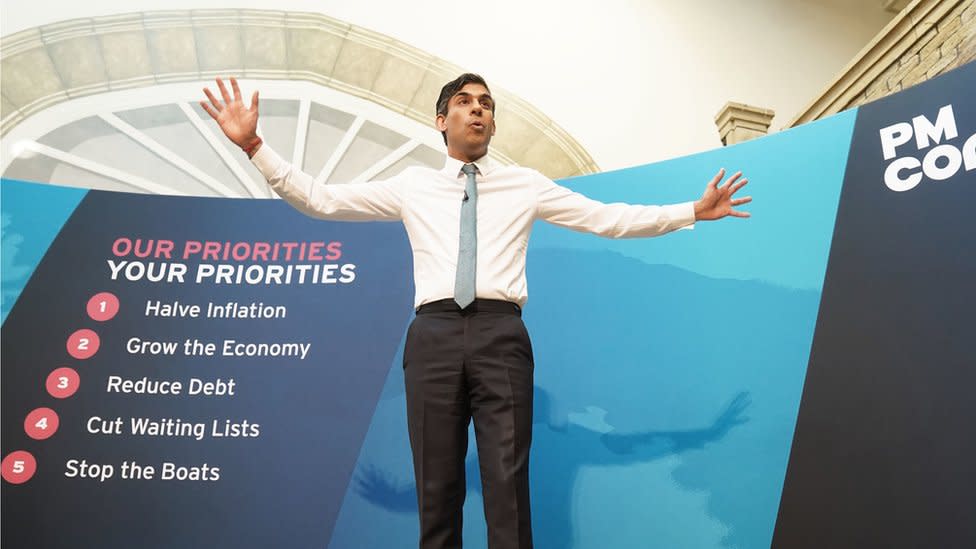
On 4 January 2023, Prime Minister Rishi Sunak set out his five priorities.
"I fully expect you to hold my government and I to account on delivering those goals," he said.
What progress has he made?
Halving inflation
The government's top priority was halving inflation - the increase in prices over time - by the end of 2023.
Inflation was at 10.7% in the three-month period between October and December 2022, so the aim was to reduce inflation to 5.3% or lower in the last three months of 2023.
The government is using a measure called the Consumer Prices Index (CPI), which tracks the price of a typical basket of goods.
The CPI for the last three months of 2023 was 4.2%, comfortably below half the rate it was the year before - so the government has met this pledge.
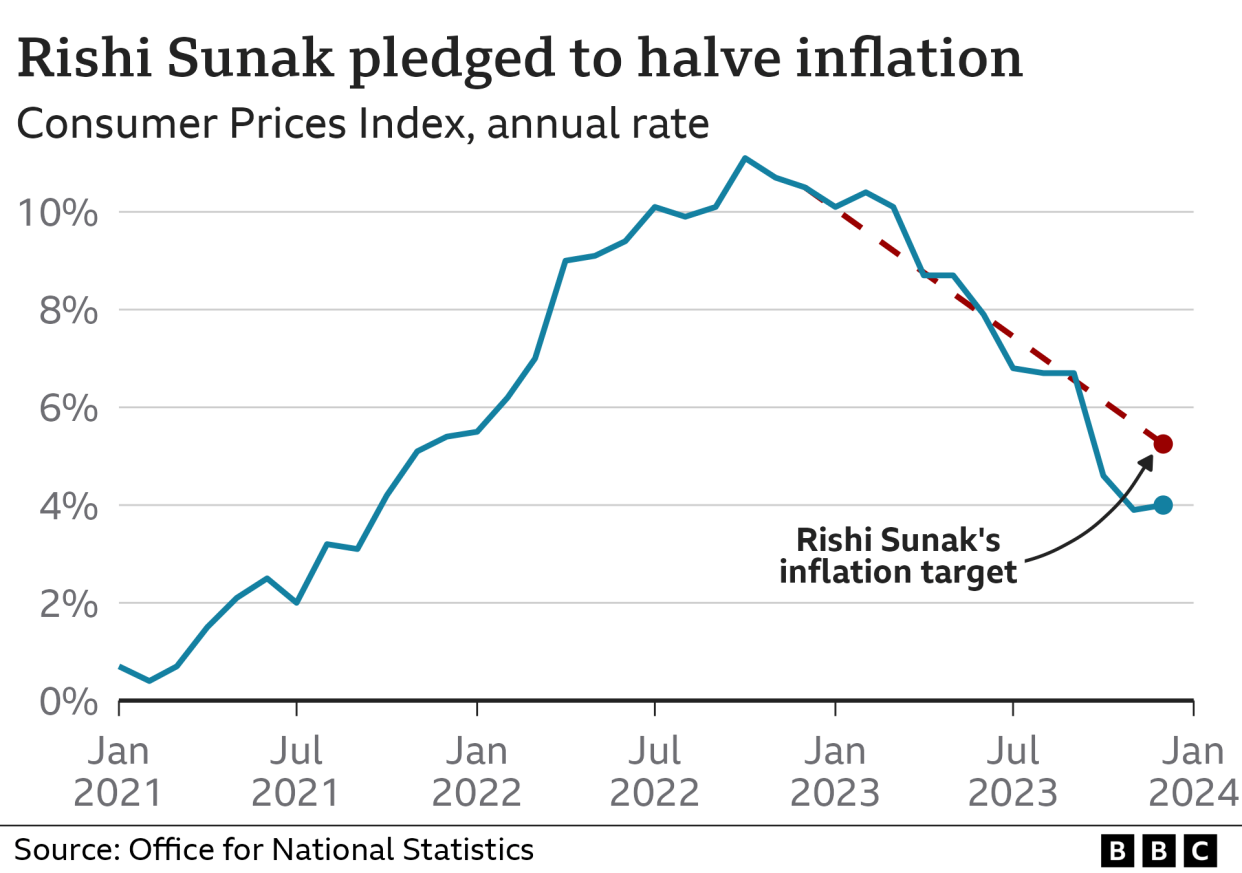
Growing the economy
The government has never publicly said what measure should be used to assess if it had met the prime minister's pledge to "grow the economy", despite repeated requests.
In some private briefings to journalists, sources said it would be if the economy was bigger in the three-month period of October to December 2023 than in the previous quarter (July-September).
That was not achieved - the economy shrank 0.3% in the last three months of the year, sending it into recession.
Overall the economy grew by only 0.1% in the whole of 2023.
Growth in the economy is measured using GDP (or Gross Domestic Product), a measure of all the activity of companies, governments and individuals.
On 28 March 2024, Chancellor Jeremy Hunt was asked if the government had failed in its pledge to create growth. He said that the promise had been to halve inflation but that the prime minister: "then said we would grow the economy. I don't think any of us were expecting the economy to actually grow last year."
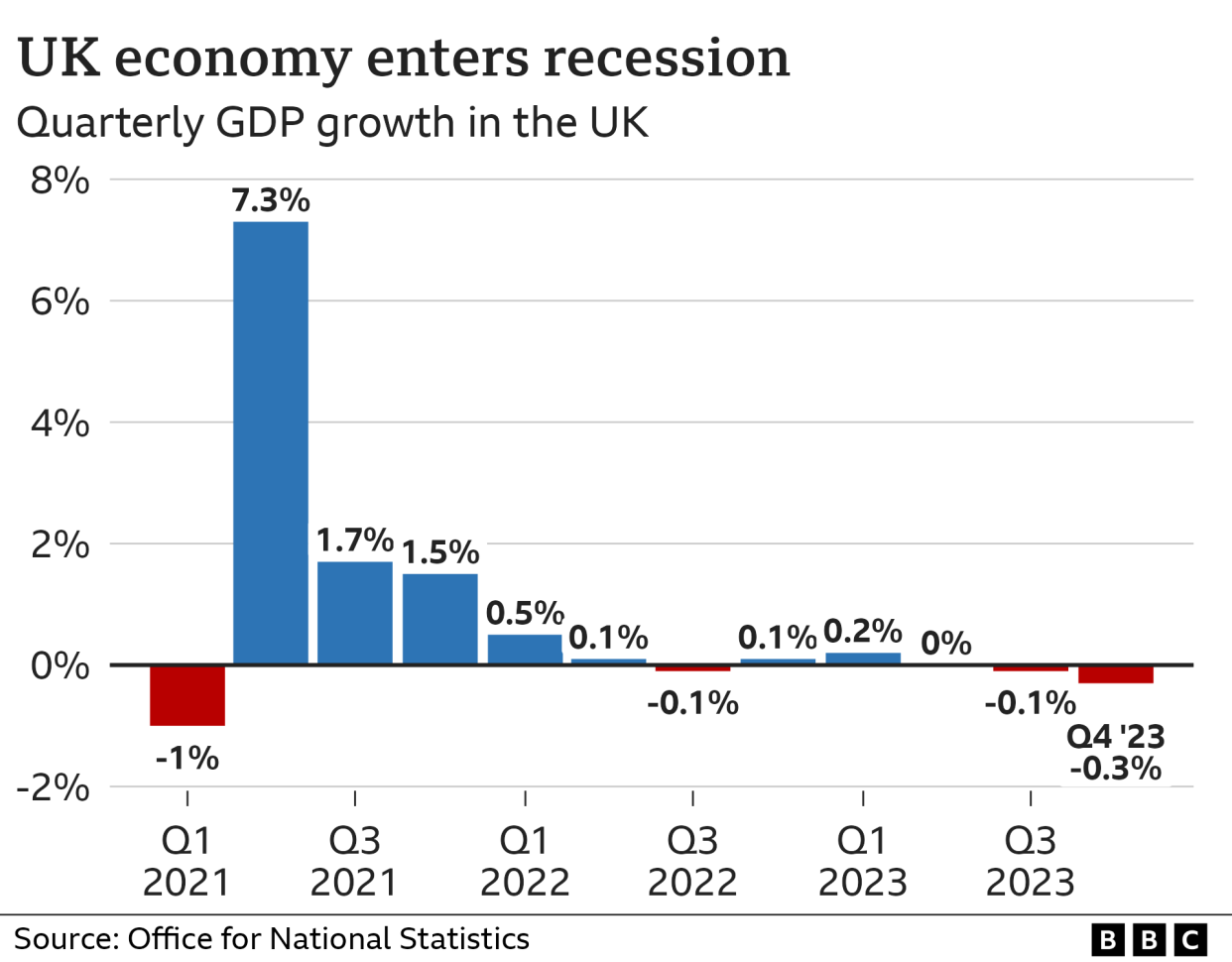
The pledge to grow the economy was made more difficult by the government's promise to halve inflation.
The Bank of England put up interest rates 14 times to stop prices rising so quickly.
However, this also reduced spending, and slowed economic growth.
Reducing debt
When governments talk about reducing debt, it almost always mean as a proportion of GDP.
The idea is that debt is coming down if it is growing more slowly than the economy.
In December, the statistics regulator criticised the prime minister for saying debt was falling when it was actually rising, as BBC Verify also pointed out.
The latest figures for February showed that government debt stood at 97.1% of the size of the economy.
That was 2.3 percentage points higher than February 2023 and, as the Office for National Statistics pointed out, "remains at levels last seen in the early 1960s".
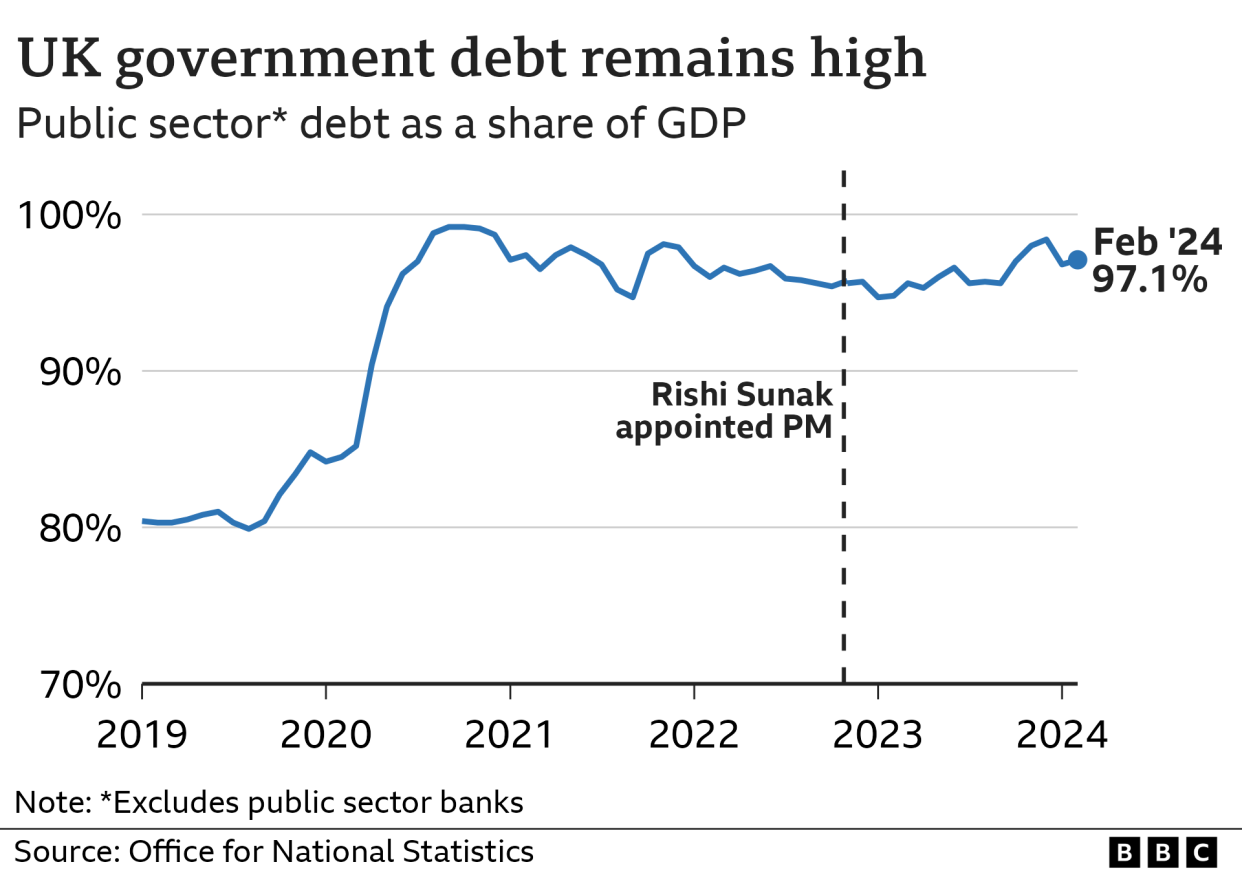
But the government pledge was not about how much debt is now - it was that debt would be forecast to come down in five years (2028-29).
In the Budget in March, Jeremy Hunt claimed to be on track to meet that pledge because the Office for Budget Responsibility (OBR) predicted a fall in 2028-29.
But it is going to be tight and will involve challenging spending restraint for some government departments.
When will we know? The next debt forecasts will be published at the next fiscal event, probably in the autumn of 2024.
Cutting NHS waiting lists
Mr Sunak said: "NHS waiting lists will fall and people will get the care they need more quickly."
His pledge only refers to waiting lists in England, because Scotland, Wales and Northern Ireland manage their own health systems.
The overall number of waits for non-emergency treatment in England was 7.5 million in February. This was the sixth monthly fall in a row and about 200,000 down from August, but about 600,000 higher than it was when Mr Sunak came to office.
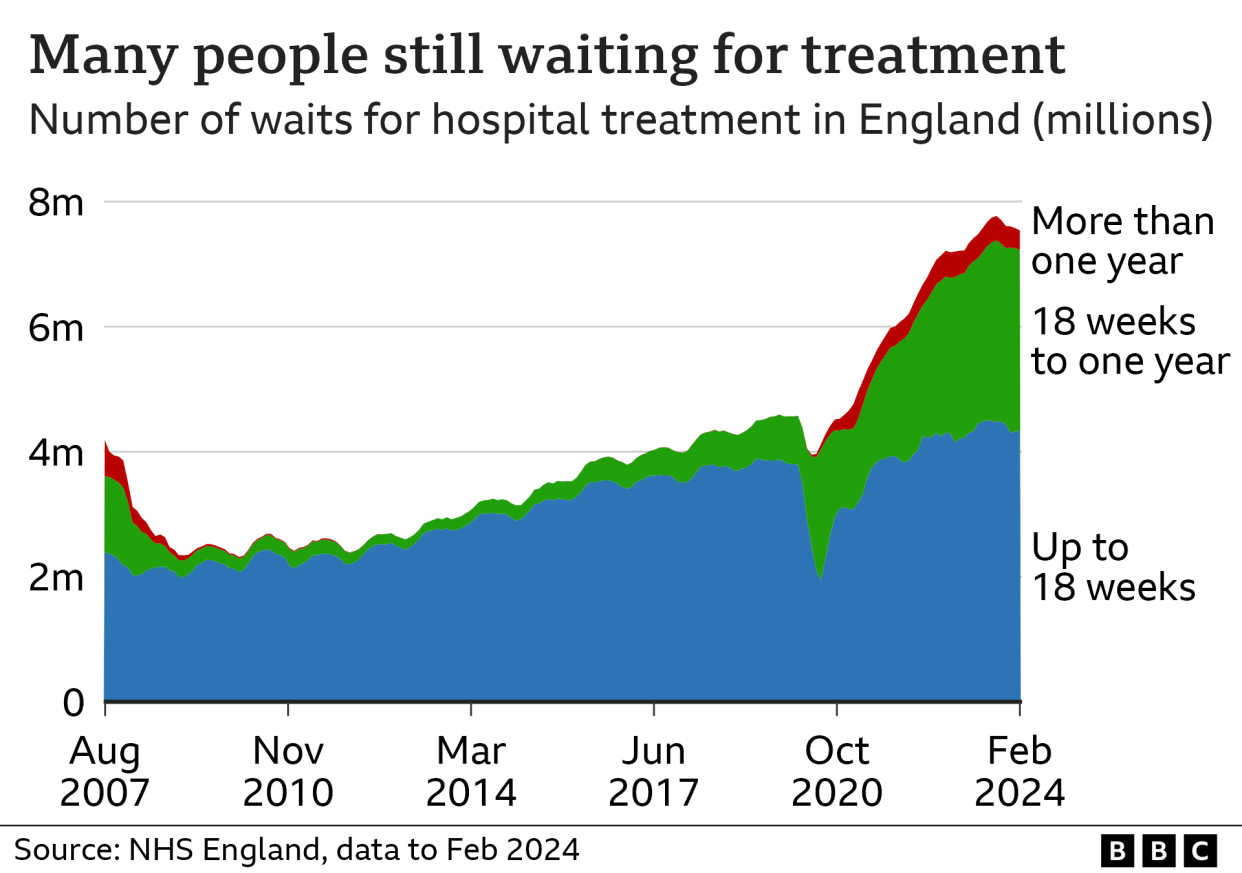
The prime minister was asked in an interview on TalkTV on 5 February 2024 whether his government had failed to achieve his pledge, Mr Sunak said: "Yes, we have."
He highlighted the level of NHS spending and said: "All these things mean the NHS is doing more than it ever has but industrial action has had an impact."
Research by the Health Foundation think tank suggested that industrial action by consultants and junior doctors had lengthened the waiting list by around 210,000.
When will we know?: Monthly waiting list figures are published about six weeks after the end of each month.
Stopping small boats
The final priority was to "stop the boats" which bring people across the English Channel, after 45,755 migrants crossed over from France that way in 2022.
The prime minister proposed to do this through new legislation. The government finally passed its Illegal Migration Bill on 17 July, giving the home secretary a legal duty to detain and remove anyone entering the UK illegally.
The plan included sending some asylum seekers to Rwanda but this was blocked by the Supreme Court.
In response, the government signed a new treaty with Rwanda and proposed new UK laws declaring Rwanda a safe country.
The new legislation passed through the House of Commons and moved to the House of Lords at the end of January 2024. In April 2024, it was bouncing between the Lords and the Commons as amendments were made by peers and rejected by MPs.
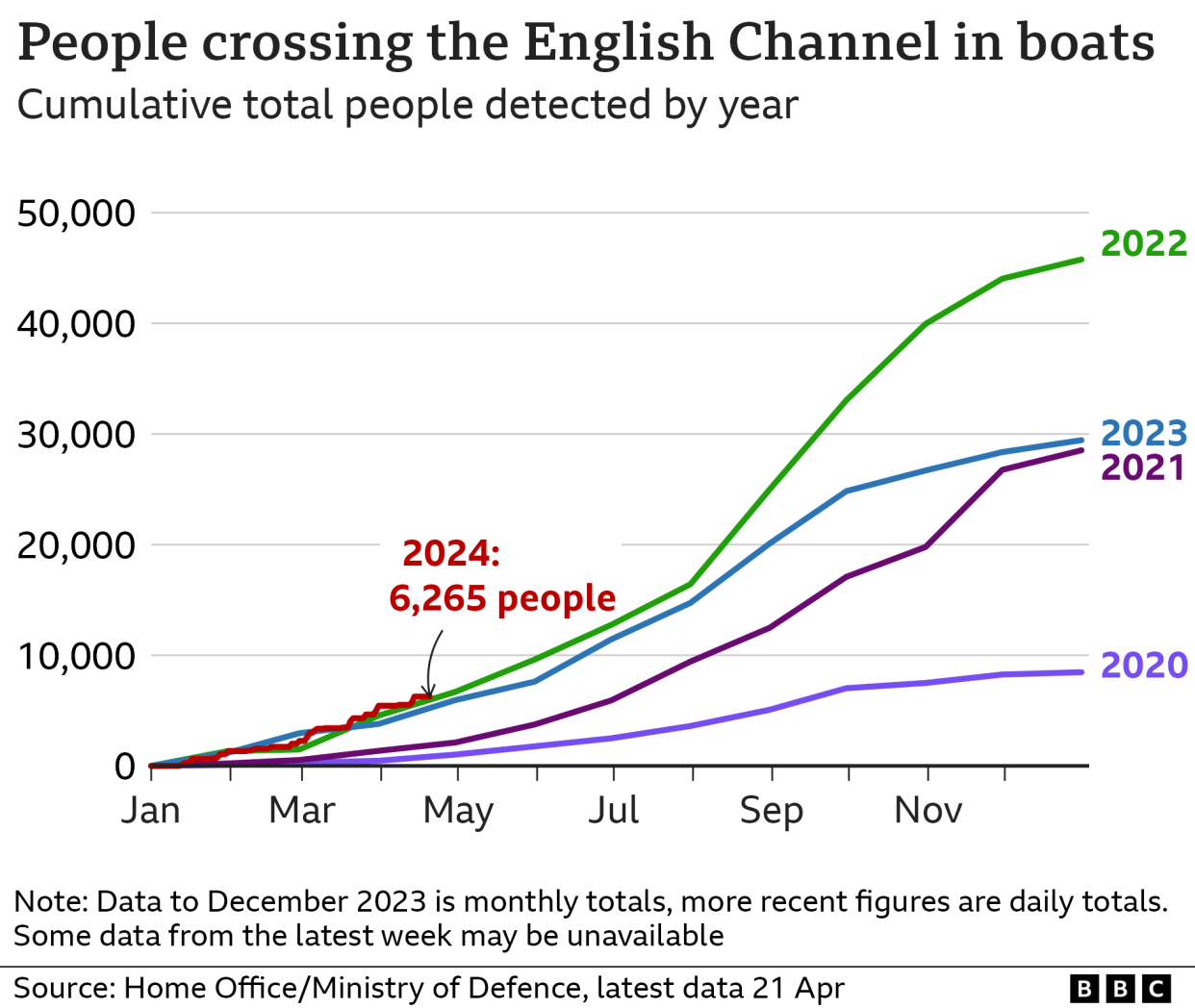
Mr Sunak has said that his plan to tackle small boat crossings is "starting to work".
In the whole of 2023, 29,437 people were detected crossing the English Channel, according to the Home Office, which is down more than a third from the previous year.
So far in 2024, 6,265 people have been detected, which is up a quarter from the same period last year.
When will we know? Figures on arrivals in small boats are collected daily.

What do you want BBC Verify to investigate?
